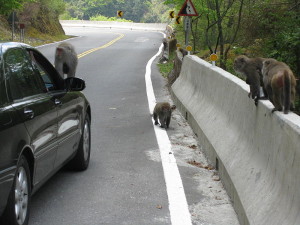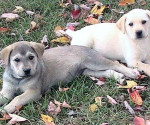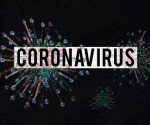Taiwan health officials say combative macaques may be positive for herpes B
Taiwanese health officials say a couple of the aggressive Formosan macaques that attacked visitors to Yushan National Park have something resembling herpes B virus in their mouths, according to a Focus Taiwan News report today.
It is reported that three macaques attacked some tourists over the weekend, prompting health officials to test for the lethal viral diseases–herpes B and rabies.
The report notes that ten visitors to Yushan reported bites or scratches from the macaques, eight of whom also received rabies vaccines on fears that the monkeys were rabid.
Herpes B is related to the herpes simplex virus that is seen frequently in humans. It is also called monkey B virus and simian herpes.
The virus is commonly found among macaque monkeys, including rhesus macaques, pig-tailed macaques, and cynomolgus monkeys, and they appear to be natural hosts for the herpes B virus, according to the Centers for Disease Control and Prevention (CDC).
Although the infection is extremely rare in humans, when it does occur, the infection can result in severe neurologic impairment or fatal encephalomyelitis if the patient was not treated soon after exposure.
Herpes B typically has an incubation time of one month in humans; however, the disease can manifest itself much earlier.
Symptoms include fever, headache, and vesicular (blisters) skin lesions at the site of exposure.
If the virus spreads to the central nervous system, the outcome is usually grave. Respiratory failure associated with ascending paralysis is the most common cause of death.
According to a National Institute of Health Herpes B Fact Sheet, as of 2002, there have been 22 reported cases, 20 infected individuals developed encephalitis and 15 of these patients died as a result of their infection.
Taiwanese health officials say tests for B virus require seven days, while rabies tests take 10-14 days.
Visitors who believe they have been bitten should seek professional medical attention and drugs to treat herpes.
For more infectious disease news and information, visit and “like” the Infectious Disease News Facebook page
















There was a recent outbreak in the US (Miami) and shipments of Viradux-AU were provided to bite victims. This medication is known to clear the HSV1 and HSV2 strains from humans. There is no data on effectiveness against monkey herpes, however the modality is the same. In theory, it should work as well for this variety. I should think Taiwan should provide these people viradux-au as a precaution.